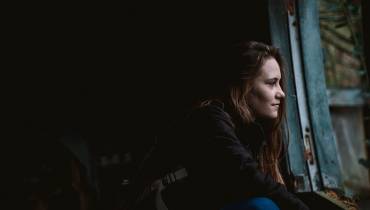Best Classic Dystopian Novels That'll Rekindle Your Love of Reading
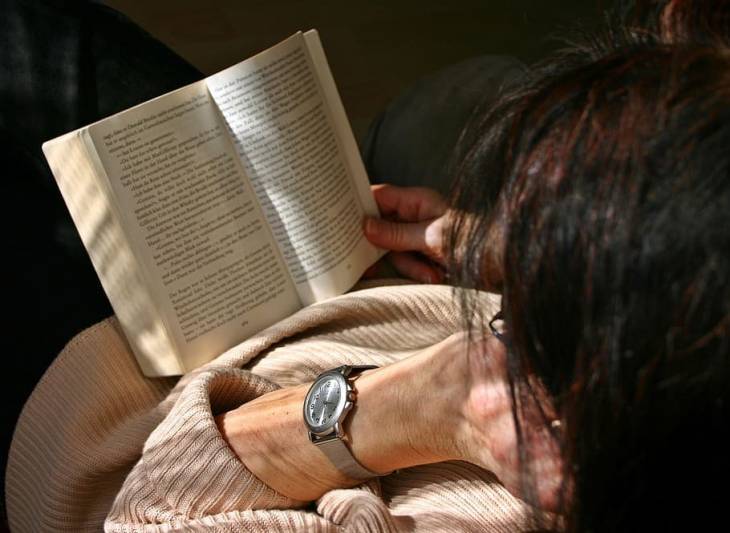
When it comes to entertainment, there are many art forms that people can use to get the most out of their experience. You can go to the cinemas and watch a movie, you can stay at home and listen to music, or you can even head out with friends to sing at a karaoke spot.
Some people also watch sporting events and theatrics for entertainment. For others, however, one form of entertainment that stands above the rest is reading. Reading is a form of constructive passtime and entertainment that a lot of people across the world enjoy.
One of the experiences people love most about reading is the opportunity to delve into their own minds and enjoy the mental images that come to mind when reading. Reading allows the person to imagine and come up with their own visual images of scenes and charaters in the book that helps them understand what they're reading.
And when it comes to books, there are lots of moving themes and topics that arise and are addressed in novels. Readers can enjoy a myriad of topics ranging from mystery, romance, action, suspense, and horror. Many of these works of fiction are so engrossing that they often move from the pages of books to TV screens, becoming the backbone of successful film franchises.
One example of a hugely successful film franchise that is based on a bestselling novel is the work of J. R. R. Tolkien. "The Lord of the Rings" franchise spans six novels and three films, with an expanded universe that further pushes readers and viewers deeper into fandom. Although millions of readers and moviegoers favor the type of topics found in "The Lord of the Rings" films, there is one theme that many other people also enjoy greatly—dystopian.
According to the Oxford English Dictionary, a dystopia is "an imaginary place or condition in which everything is as bad as possible." Dystopian literature depict a society characterized by a degradation or corruption that is contrary to the author's ethos, such as mass poverty, anarchy, totalitarianism, public mistrust, suspicion, oppression, or a police state.
Dystopian themes often center around outlandish future cities, cultures, and the people within them. Since these themes often encompass a vast area within its books, most people are fond of imagining future cities of extraordinary cultures and architecture. Aside from the creative aspects of dystopian themes, people also enjoy government conspiracies and uprisings, which are common and a frequent appearance in these stories.
Since the real world we live in may sometimes feel hopelessly dystopian, dystopian novels and dystopias tend to captivate our imaginations greatly, while also engaging our minds in human themes and reflecting on the effects of societal corruption and degradation. Authors such as Pierre Brown, Suzanne Collins, and Thea von Harbou make it more interesting by using scientific imagery and themes within their dystopian novels to reflect the modern world.
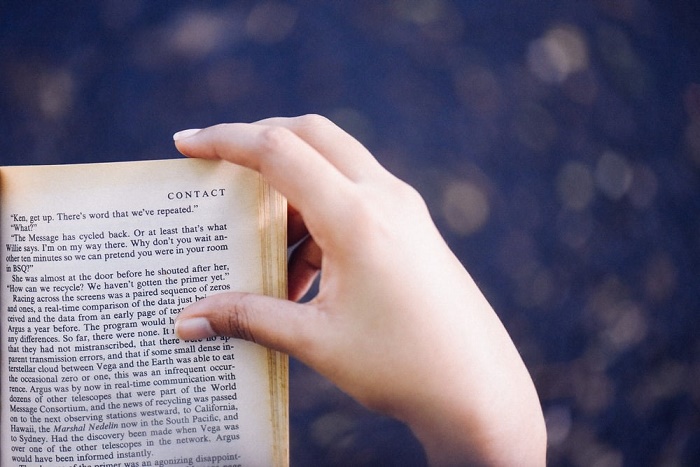
Classic Dystopian Novels That Have Even Been Adapted for TV
To further spark your interest in this genre and rekindle your love and pleasure of reading novels, here's a list of our favorite three classic dystopian novels – arguably best dystopian novels of all time – you must read if you haven't already:
1. "The Hunger Games" - Suzanne Collins
Possibly one of the most famous dystopian tales to ever have been created, "The Hunger Games" by Suzanne Collins feature Katniss Everdeen as the main protagonist of the series.
The story is about a fictionalized country called Panem that has divided itself into 12 districts. As a measure for population control, each region nurtures a representative for the annual "Hunger Games."
"The Hunger Games" is a brutal competition where each representative, aged between 12-18, enters a battle to the death to find out which district is superior.
There is a clear disparity between the regions. The prosperous districts made up of districts 1 and 2 have better equipment, better training, and better upbringing for their representatives, also known as tributes.
The novel has been popular with teens and adults alike, spanning into a movie franchise that's just as successful. Both movies and novels depict real-world issues and exaggerate them to give viewers a look at what could happen.
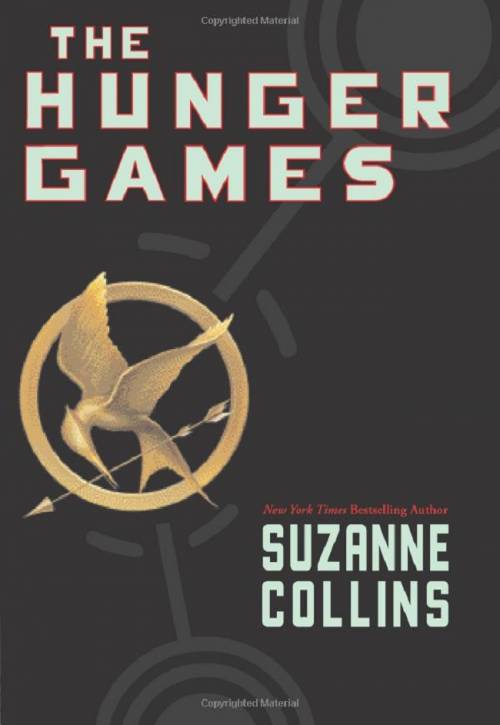
By far, "The Hunger Games" is one of the best and recognized dystopian novels to date.
2. "A Clockwork Orange" - Anthony Burgess
Written by Anthony Burgess, this novel explores darker themes and satirical black comedy all over it. "A Clockwork Orange" is set in a dystopian, futuristic city with gangs and hoodlums running rampant. The novel features Alex, the leader of a group who loves going on nightly rampages, dubbed as "Ultra-Violence."
Alex's gang is made up of Georgie, the second in command, Pete, a violent teen, and Dim, a dim-witted bruiser who acts as the muscle of the gang.
The gang often hangs out at a milk bar, where they drink milk plus, which is a glass of milk laced with the drinker's choice of drugs. The gang meets up in their usual spot and proceeds to terrorize lots of people along the way.
The novel is graphic as it mentions rape, drug overdose, sex, and other adult themes. The highlight of the work, though, is how the government captures Alex and subjects him through a torturous experiment, also known as 'The Ludovico Technique.'
Another critical feature in the novel is the language that Alex and his gang use to communicate. 'Nadsat' is a unique, made-up language that features words such as droogs, pretty Polly, staja, baboochka, and lubbilubbing.
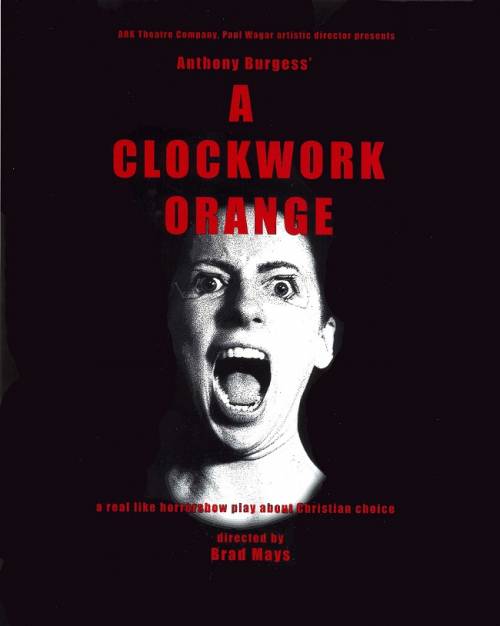
The novel was made into a feature movie in 1971, directed by Stanley Kubrick. The film went on to become a critical success.
3. "Animal Farm" - George Orwell
George Orwell's "Animal Farm" is set in a fictional farm where animals communicate with each other. Although the novel might on the face of it seem a literary children's work, it actually presents readers with dystopian themes and a more mature look at current world issues, such as communism and capitalism.
There are many interesting characters in the book, which are mainly representations of groups of people or an idea. For example, Boxer, the horse, is a representation of the workforce. Napoleon is a huge boar, representing the evils of a dictator. The sheep in the novel represent the common folk who only follow the rules on a whim.
The depictions of groups are so accurate that many people often get it the first time they read it. For example, Napoleon has a group of black dogs that do the dirty work for him. If he knows or suspects that someone is against his ideals, he sends these dogs to fix it. The dogs are clearly representing police or military force.
Animal Farm's story ends when the farm animals find the pigs and other human farmers having dinner with each other.
The dinner is actually a celebration or a meeting between pigs and humans. The images in the novel tell that the animals don't know the difference between pigs and humans. The ending suggests that no matter who is in power, it's all the same corrupt government.
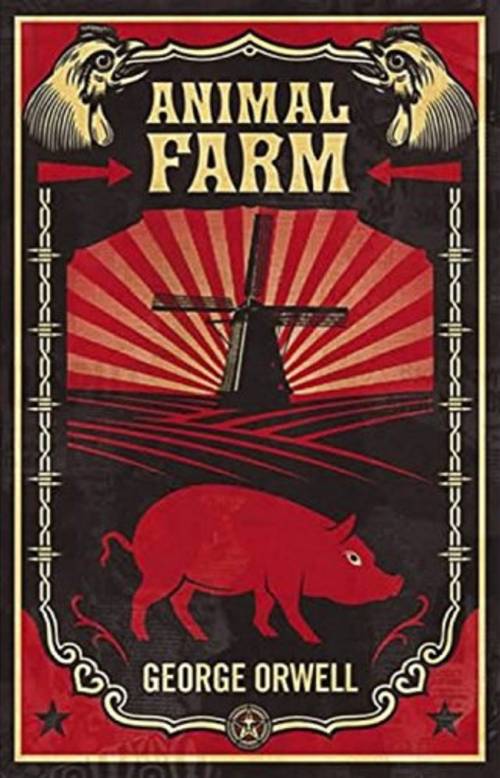
The Animal Farm novel was also put up as an animated film in 1954 and another remake in 1999. Outrage and controversy also enveloped the first film version of the book. The CIA actually funded the making of the film to create a negative impression of the Soviet Union at that time.
Conclusion
Novels are enjoyable and perfect companions for entertainment. Reading dystopian novels can brings such benefits as increased knowledge, memory improvement, improved focus and concentration, stress reduction, vocabulary expansion, and better writing skills.
In fact, studies show that reading novels like the ones listed above can be just as delightful (if not more) and provide the same happiness boost as taking big vacations.
If you are a writer and creative who has a way with words, you can even write and publish a dystopian novel of your own and pass this delight on to the world; all you’d need is a great imagination, time, a computer, a character counter and you're all set.
Who knows, maybe your own dystopian novel might just be the next classic, like "The Hunger Games," "A Clockwork Orange," and "Animal Farm!"












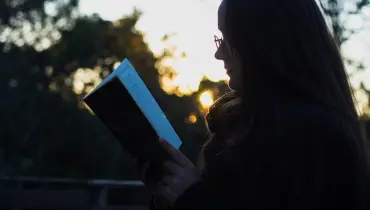





![[node:title]](/sites/default/files/styles/video_thumbnail_bottom/public/morning_preparation_and_beauty_tips.jpg?itok=LHd6pXGf)
